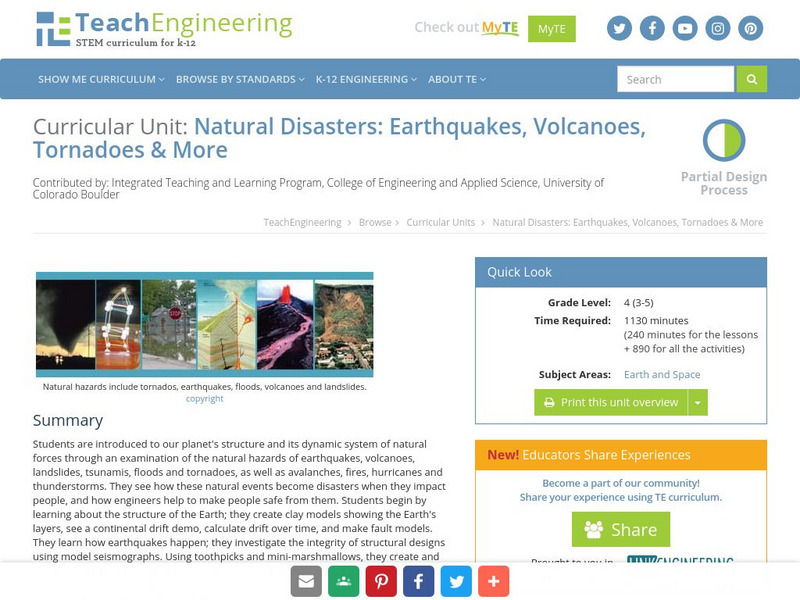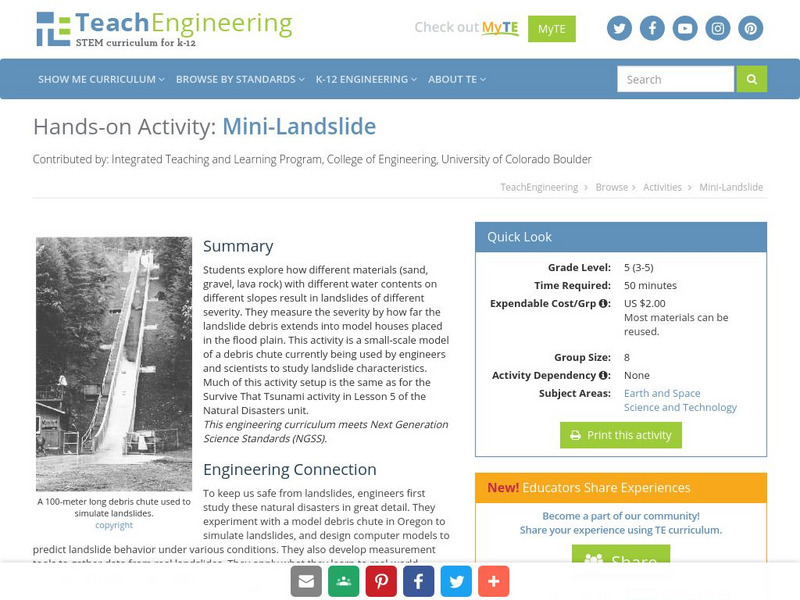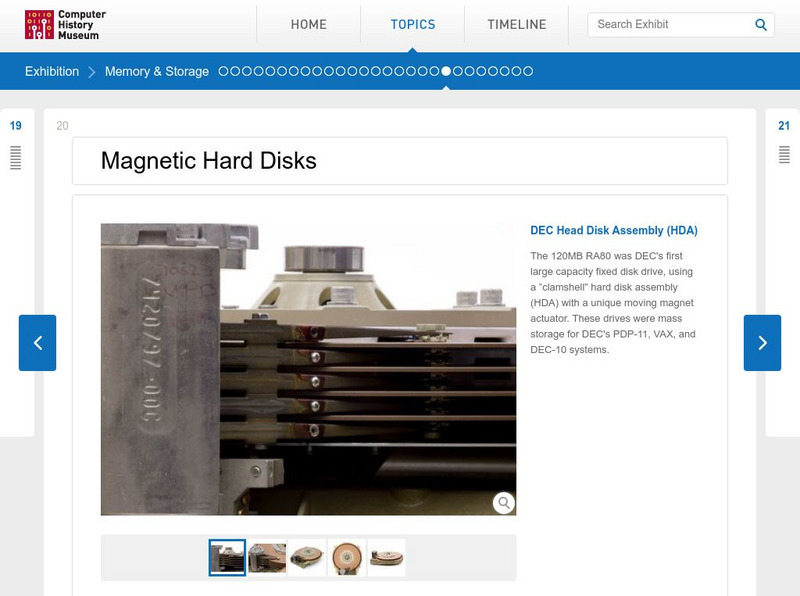Hi, what do you want to do?
Curated OER
Ocean Currents
Fourth graders work in groups to research ocean currents and create posters with their findings. They locate the patterns and names of major ocean currents and identify them on a map. Students also use red pencil to show ocean currents...
Curated OER
Earth and Space Science: Exploring Earthquakes
Learners explore earthquakes. In this earthquake activity, students research earthquakes and identify where they take place. Learners use map skills to track down earthquake locations. There are internet sites suggested in this activity.
Curated OER
Winds of Destruction
Fourth graders discuss the problems that have arisen from the lastest string of hurricanes and tsuanamis. They watch a video about severe weather. After the film, 4th graders write four facts they found out about severe weather. ...
Curated OER
Living at the Seashore
Learners examine how the proximity of all areas of Japan to the ocean influences lifestyles and determines occupations for the people. This lesson includes lesson extensions and a concept list.
Curated OER
Tic-Tac-Toe for Layers of the Earth
Eighth graders identify the different layers of the earth. In this earth science lesson, 8th graders choose a project to do from a given list according to their learning style. They present their finished project in class.
NOAA
Noaa: Center for Tsunami Research
National Oceanic and Atmospheric Administration's site for tsunami research of improved measurement technology, development and implementation of improved models and improved methods to predict tsunami impacts on the population and...
TeachEngineering
Teach Engineering: Survive That Tsunami!
Students use a table-top-sized tsunami generator to observe the formation and devastation of a tsunami. They see how a tsunami moves across the ocean and what happens when it reaches the continental shelf. Students make villages of model...
Columbia University
Scientific Background on the Indian Ocean Earthquake and Tsunami
This site features information and related links that can be used by students and scientists to understand the events that led to the December 2004 Indian Ocean tsunami.
PBS
Pbs: Anatomy of a Tsunami
Scientists used maps and seismic data to produce a computer simulation that accurately shows the creation of the wave that shook the world. In this interactive, examine some of the models and images that reveal details of the tsunami...
TeachEngineering
Teach Engineering: Tsunami Attack!
Young scholars learn about tsunamis, discovering what causes them and what makes them so dangerous. They learn that engineers design detection and warning equipment, as well as structures that that can survive the strong wave forces. In...
TeachEngineering
Teach Engineering: Natural Disasters
Students are introduced to our planet's structure and its dynamic system of natural forces through an examination of the natural hazards of earthquakes, volcanoes, landslides, tsunamis, floods and tornados, as well as avalanches, fires,...
TeachEngineering
Teach Engineering: Mini Landslide
Students explore how different materials (sand, gravel, lava rock) with different water contents on different slopes result in landslides of different severity. They measure the severity by how far the landslide debris extends into model...
Computer History Museum
Computer History Museum: Magnetic Disks
A brief history covering magnetic disks, developed as efficient random access memory device. Additionally, a discussion on how a disk drive works is provided. The artifacts are on display at the Computer History Museum. This site...

















